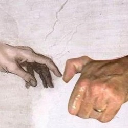-
 Bitcoin
Bitcoin $85,618.5384
2.96% -
 Ethereum
Ethereum $1,640.2124
5.21% -
 Tether USDt
Tether USDt $0.9997
0.03% -
 XRP
XRP $2.1632
7.34% -
 BNB
BNB $597.1208
1.93% -
 Solana
Solana $132.8194
9.58% -
 USDC
USDC $0.9999
-0.01% -
 Dogecoin
Dogecoin $0.1676
5.63% -
 TRON
TRON $0.2466
2.33% -
 Cardano
Cardano $0.6579
6.01% -
 UNUS SED LEO
UNUS SED LEO $9.3558
0.64% -
 Chainlink
Chainlink $13.1471
4.65% -
 Avalanche
Avalanche $20.4796
7.96% -
 Stellar
Stellar $0.2473
5.87% -
 Sui
Sui $2.3384
7.44% -
 Hedera
Hedera $0.1756
5.28% -
 Shiba Inu
Shiba Inu $0.0...01252
3.40% -
 Toncoin
Toncoin $2.9499
4.76% -
 Bitcoin Cash
Bitcoin Cash $340.5254
9.00% -
 MANTRA
MANTRA $6.2672
-2.89% -
 Litecoin
Litecoin $78.6729
3.87% -
 Polkadot
Polkadot $3.7183
4.58% -
 Hyperliquid
Hyperliquid $16.7994
10.67% -
 Dai
Dai $1.0001
0.03% -
 Bitget Token
Bitget Token $4.4320
2.74% -
 Pi
Pi $0.7326
16.74% -
 Ethena USDe
Ethena USDe $0.9991
0.04% -
 Monero
Monero $210.4897
0.60% -
 Uniswap
Uniswap $5.4973
5.84% -
 OKB
OKB $54.8064
3.33%
What is RWA (real world asset) tokenization?
RWA tokenization converts real-world assets into digital tokens on blockchain, enhancing liquidity and accessibility for investors in real estate, art, and more.
Apr 13, 2025 at 12:21 am
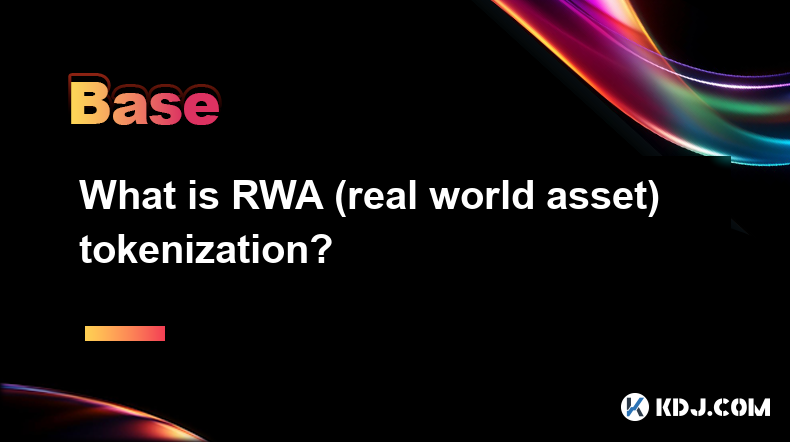
What is RWA (Real World Asset) Tokenization?
RWA (Real World Asset) tokenization refers to the process of converting tangible or intangible real-world assets into digital tokens on a blockchain. This innovative approach allows for the representation, ownership, and transfer of assets such as real estate, art, commodities, and intellectual property through digital means. By tokenizing these assets, they can be divided into smaller units, making them more accessible and tradable on blockchain platforms.
The Concept of Tokenization
Tokenization involves creating a digital representation of an asset on a blockchain. This digital token can represent ownership or a share in the underlying asset. The primary benefit of tokenization is the increased liquidity and accessibility it provides. Assets that were previously difficult to divide and trade can now be split into smaller, more manageable units, allowing a broader range of investors to participate.
Types of Real World Assets That Can Be Tokenized
A variety of assets can be tokenized, including but not limited to:
- Real Estate: Properties can be tokenized to allow fractional ownership, making real estate investment more accessible to smaller investors.
- Art and Collectibles: Valuable artworks and collectibles can be tokenized, enabling investors to own a piece of high-value items.
- Commodities: Physical commodities like gold and oil can be represented as tokens, facilitating easier trading and storage.
- Intellectual Property: Rights to music, patents, and other forms of intellectual property can be tokenized, allowing for more flexible ownership and revenue sharing.
Benefits of RWA Tokenization
Tokenizing real-world assets offers several advantages:
- Increased Liquidity: By breaking down assets into smaller units, tokenization allows for easier buying and selling, increasing market liquidity.
- Accessibility: Fractional ownership means that even those with limited capital can invest in high-value assets.
- Transparency and Security: Blockchain technology ensures that all transactions are recorded on a public ledger, reducing the risk of fraud and increasing trust among participants.
- Efficiency: Tokenization can streamline processes such as asset transfer and management, reducing costs and time.
The Process of Tokenizing Real World Assets
Tokenizing a real-world asset involves several steps:
- Asset Selection: Choose the asset you want to tokenize. This could be anything from a piece of real estate to a piece of art.
- Legal and Regulatory Compliance: Ensure that the tokenization complies with all relevant laws and regulations. This may involve working with legal experts to navigate the complexities of asset tokenization.
- Token Creation: Develop the token on a suitable blockchain platform. This involves defining the token's properties, such as its total supply and divisibility.
- Asset Verification: Verify the ownership and authenticity of the asset. This step is crucial to ensure that the token accurately represents the underlying asset.
- Token Distribution: Distribute the tokens to investors or buyers. This can be done through an Initial Token Offering (ITO) or other distribution methods.
- Management and Trading: Once the tokens are distributed, they can be managed and traded on blockchain platforms, allowing for ongoing liquidity and investment opportunities.
Challenges and Considerations in RWA Tokenization
While RWA tokenization offers numerous benefits, there are also challenges and considerations to keep in mind:
- Regulatory Uncertainty: The regulatory environment for tokenized assets can be complex and varies by jurisdiction. Navigating these regulations requires careful planning and legal expertise.
- Technical Complexity: Creating and managing tokens on a blockchain requires technical knowledge and infrastructure. Ensuring the security and integrity of the tokenized assets is paramount.
- Market Acceptance: For tokenized assets to be successful, they need to be accepted by the market. This involves building trust and demonstrating the value of tokenization to potential investors.
- Valuation and Pricing: Determining the value of tokenized assets can be challenging, especially for unique or illiquid assets. Accurate valuation is essential for fair trading and investment.
Examples of RWA Tokenization
Several projects have successfully tokenized real-world assets, providing practical examples of how this technology can be applied:
- RealT: RealT allows users to buy and sell tokenized real estate properties. Investors can own fractions of properties and receive rental income in the form of cryptocurrency.
- Maecenas: Maecenas enables the tokenization of high-value artworks, allowing investors to buy shares in pieces of art and potentially benefit from their appreciation in value.
- Harbor: Harbor provides a platform for tokenizing various assets, including real estate and private equity. It helps issuers comply with regulations and manage their tokenized assets.
Frequently Asked Questions
Q: How does RWA tokenization affect traditional asset management?
A: RWA tokenization can significantly impact traditional asset management by increasing liquidity and accessibility. It allows for more efficient management and trading of assets, potentially reducing costs and increasing returns for investors. However, it also requires traditional asset managers to adapt to new technologies and regulatory frameworks.
Q: Can anyone tokenize an asset, or are there specific requirements?
A: Not everyone can tokenize an asset. There are specific requirements, including legal and regulatory compliance, that must be met. Additionally, the process requires technical expertise and infrastructure to create and manage tokens on a blockchain.
Q: How do taxes work with tokenized real-world assets?
A: The taxation of tokenized real-world assets can be complex and depends on the jurisdiction. Generally, any gains from the sale of tokenized assets may be subject to capital gains tax. Additionally, income generated from tokenized assets, such as rental income from tokenized real estate, may be taxed as regular income. It's important to consult with a tax professional to understand the specific tax implications.
Q: What are the risks associated with investing in tokenized assets?
A: Investing in tokenized assets comes with several risks, including market risk, regulatory risk, and technological risk. Market risk involves the potential for the value of the asset to fluctuate. Regulatory risk arises from the uncertainty and potential changes in laws governing tokenized assets. Technological risk includes the possibility of security breaches or technical failures in the blockchain platform used for tokenization.
Disclaimer:info@kdj.com
The information provided is not trading advice. kdj.com does not assume any responsibility for any investments made based on the information provided in this article. Cryptocurrencies are highly volatile and it is highly recommended that you invest with caution after thorough research!
If you believe that the content used on this website infringes your copyright, please contact us immediately (info@kdj.com) and we will delete it promptly.
- XRP is trading at $2.07 with a market capitalization of $117 billion and a global 24-hour trade volume of $3.65 billion.
- 2025-04-13 10:10:12
- As April Unfolds, MAGACOINFINANCE Emerges as a Contender Alongside XRP, BTC, ETH, and SOL
- 2025-04-13 10:10:12
- Bitcoin (BTC), XRP, and Solana Are Winning Over Analysts. But There's a New Kid in Town.
- 2025-04-13 10:05:12
- Pi Coin Gains Traction in South Korea and the US, Targeting Everyday Transactions
- 2025-04-13 10:05:12
- Dogecoin (DOGE) Value: Holding on or Heading Down?
- 2025-04-13 10:00:12
- Solana (SOL) Sees Massive Token Unlock From FTX/Alameda, Raising Doubts About Market Performance Despite Recent Price Hike
- 2025-04-13 10:00:12
Related knowledge

What is Delayed Encryption technology?
Apr 11,2025 at 10:42pm
What is Delayed Encryption Technology? In the world of cryptocurrencies, security is paramount. One of the innovative solutions to enhance the security of digital transactions is Delayed Encryption Technology. This technology introduces a layer of security by encrypting data with a time delay, ensuring that the information remains secure until a specifi...
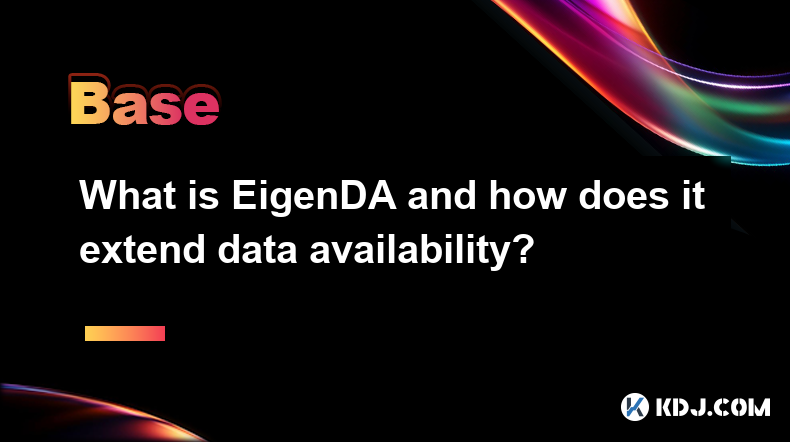
What is EigenDA and how does it extend data availability?
Apr 11,2025 at 05:28pm
EigenDA is a groundbreaking solution within the cryptocurrency ecosystem designed to enhance data availability across blockchain networks. Developed by EigenLayer, EigenDA aims to address the critical issue of data availability, ensuring that all participants in a blockchain network can access the necessary data to verify transactions and maintain the i...
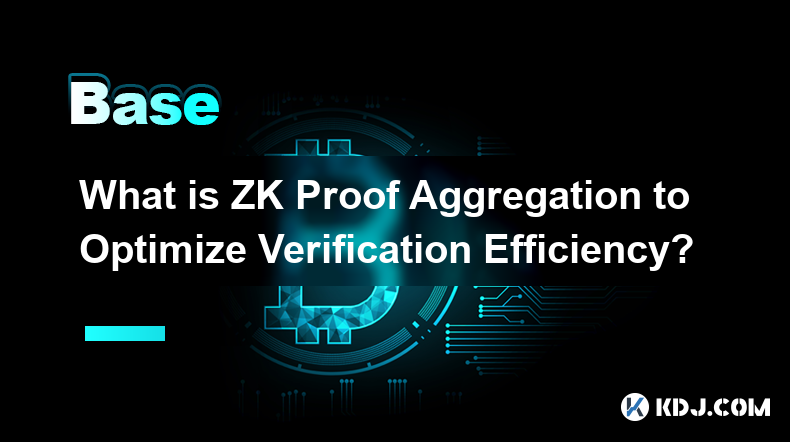
What is ZK Proof Aggregation to Optimize Verification Efficiency?
Apr 11,2025 at 05:42pm
ZK Proof Aggregation is a technique used in the field of zero-knowledge proofs (ZKPs) to enhance the efficiency of verifying multiple proofs. In the context of cryptocurrencies, where scalability and efficiency are paramount, ZK Proof Aggregation plays a crucial role in optimizing the verification process. This method allows multiple proofs to be combin...
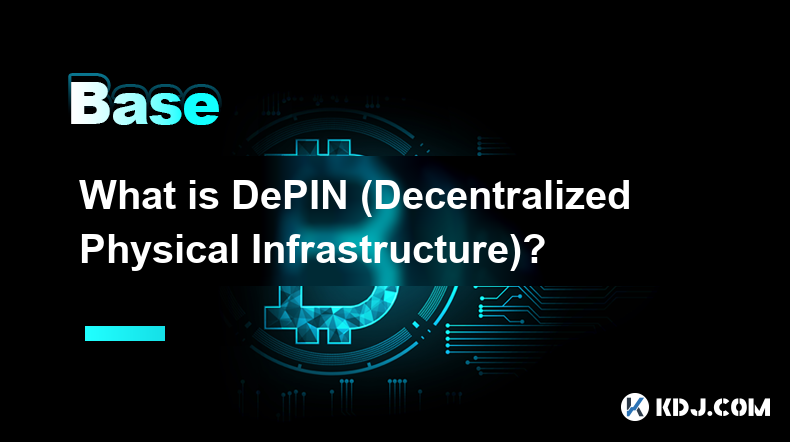
What is DePIN (Decentralized Physical Infrastructure)?
Apr 12,2025 at 01:42am
What is DePIN (Decentralized Physical Infrastructure)? DePIN, or Decentralized Physical Infrastructure, represents a groundbreaking approach to building and managing physical infrastructure using decentralized technologies. At its core, DePIN leverages blockchain and other decentralized systems to create, operate, and maintain physical assets in a way t...
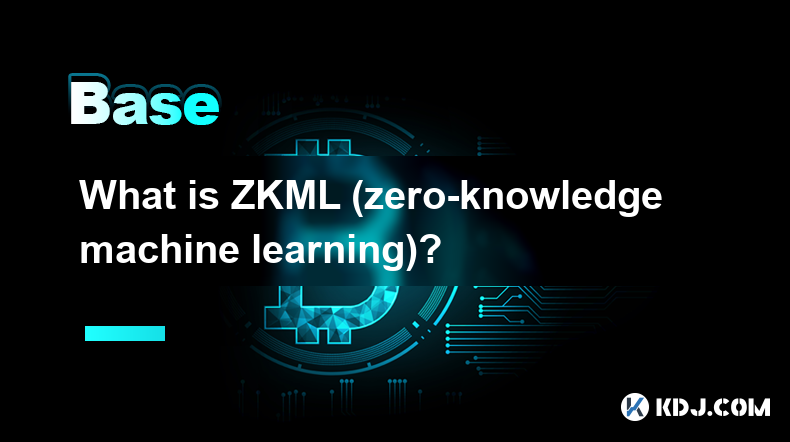
What is ZKML (zero-knowledge machine learning)?
Apr 13,2025 at 07:50am
What is ZKML (Zero-Knowledge Machine Learning)? Zero-Knowledge Machine Learning, commonly abbreviated as ZKML, represents an innovative intersection between zero-knowledge proofs and machine learning technologies within the cryptocurrency ecosystem. At its core, ZKML enables the execution of machine learning models in a way that maintains privacy and se...

What is RWA (real world asset) tokenization?
Apr 13,2025 at 12:21am
What is RWA (Real World Asset) Tokenization? RWA (Real World Asset) tokenization refers to the process of converting tangible or intangible real-world assets into digital tokens on a blockchain. This innovative approach allows for the representation, ownership, and transfer of assets such as real estate, art, commodities, and intellectual property throu...

What is Delayed Encryption technology?
Apr 11,2025 at 10:42pm
What is Delayed Encryption Technology? In the world of cryptocurrencies, security is paramount. One of the innovative solutions to enhance the security of digital transactions is Delayed Encryption Technology. This technology introduces a layer of security by encrypting data with a time delay, ensuring that the information remains secure until a specifi...

What is EigenDA and how does it extend data availability?
Apr 11,2025 at 05:28pm
EigenDA is a groundbreaking solution within the cryptocurrency ecosystem designed to enhance data availability across blockchain networks. Developed by EigenLayer, EigenDA aims to address the critical issue of data availability, ensuring that all participants in a blockchain network can access the necessary data to verify transactions and maintain the i...

What is ZK Proof Aggregation to Optimize Verification Efficiency?
Apr 11,2025 at 05:42pm
ZK Proof Aggregation is a technique used in the field of zero-knowledge proofs (ZKPs) to enhance the efficiency of verifying multiple proofs. In the context of cryptocurrencies, where scalability and efficiency are paramount, ZK Proof Aggregation plays a crucial role in optimizing the verification process. This method allows multiple proofs to be combin...

What is DePIN (Decentralized Physical Infrastructure)?
Apr 12,2025 at 01:42am
What is DePIN (Decentralized Physical Infrastructure)? DePIN, or Decentralized Physical Infrastructure, represents a groundbreaking approach to building and managing physical infrastructure using decentralized technologies. At its core, DePIN leverages blockchain and other decentralized systems to create, operate, and maintain physical assets in a way t...

What is ZKML (zero-knowledge machine learning)?
Apr 13,2025 at 07:50am
What is ZKML (Zero-Knowledge Machine Learning)? Zero-Knowledge Machine Learning, commonly abbreviated as ZKML, represents an innovative intersection between zero-knowledge proofs and machine learning technologies within the cryptocurrency ecosystem. At its core, ZKML enables the execution of machine learning models in a way that maintains privacy and se...

What is RWA (real world asset) tokenization?
Apr 13,2025 at 12:21am
What is RWA (Real World Asset) Tokenization? RWA (Real World Asset) tokenization refers to the process of converting tangible or intangible real-world assets into digital tokens on a blockchain. This innovative approach allows for the representation, ownership, and transfer of assets such as real estate, art, commodities, and intellectual property throu...
See all articles






















































































